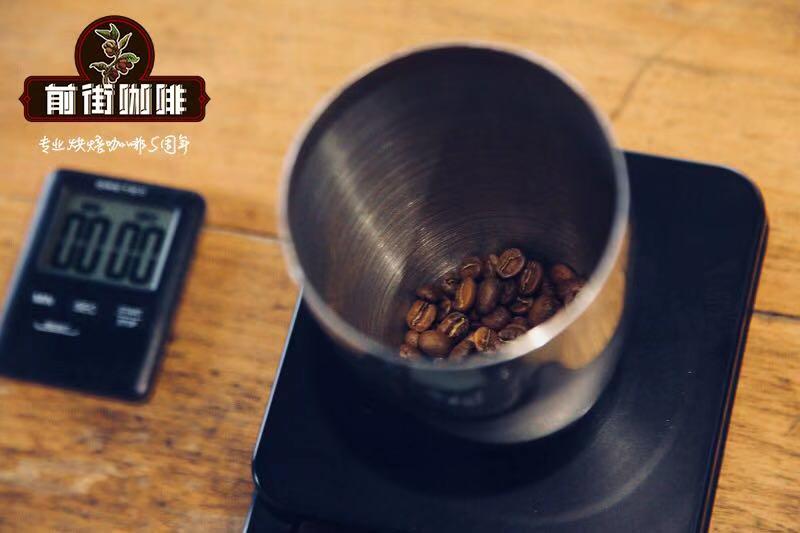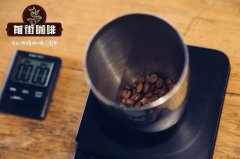Characteristics of washing treatment of Kenyan coffee beans flavor and taste of Kenyan coffee beans

Professional coffee knowledge exchange more coffee bean information please follow the coffee workshop (Wechat official account cafe_style)
Qianjie-Kenya Coffee Flavor, exquisite treatment sharing
Qianjie told you the story of coffee in Kenya today! Kenya is geographically close to Ethiopia and is also considered to be one of the places of human origin (fossilized human skulls from about 2.5 million years ago have been unearthed in the country). However, Kenyan coffee does not come from Ethiopia. The prevailing view now is that around 1893, missionaries brought bourbon coffee to Kenya and other places from the French island of Bourbon (Reunion). Therefore, many of the mainstream Kenyan beans belong to the bourbon line (one of the important branches of Arabica coffee).
In the 1950s, the world-famous Scott Laboratory (Scott Laboratory) selected two hybrids, SL-28 and SL-34, from many experimental results. This is the first time that the coffee industry has recognized the quality of artificial breeding, breaking the myth that only natural varieties are the best in coffee.
Due to the importance attached to the government level and the joint efforts of farms, cooperatives, farmers and research institutes, Kenyan coffee is among the best in Africa and even in the world in terms of yield and quality. Therefore, Kenyan coffee is also known as the "Heart of Africa".
Because of adequate fertilization and careful care, "Heart of Africa" does not have the wild and rich aroma of flowers and fruits like Ethiopian coffee. Instead, it generally tastes clean and the acidity is very pure. Accompanied by raspberry, orange peel, grapefruit, virgin fruit and other sweet and sour flavors.
Kenyan coffee beans are basically treated with fine washing, because water washing is the most important treatment for high-quality coffee beans. generally speaking, the coffee after this treatment has the purest flavor, the lowest miscellaneous flavor, and the best fruity and sour taste. therefore, fine washing is the main treatment of Kenyan coffee.
In short: Qianjie is a coffee research hall, happy to share the knowledge about coffee with you, we share unreservedly just to make more friends fall in love with coffee, and there will be three low-discount coffee activities every month. The reason is that Qianjie wants to make more friends drink the best coffee at the lowest price, which has been Qianjie's tenet for 6 years!
END
Important Notice :
前街咖啡 FrontStreet Coffee has moved to new addredd:
FrontStreet Coffee Address: 315,Donghua East Road,GuangZhou
Tel:020 38364473
- Prev

The Origin of African Kenyan Coffee beans the flavor characteristics of Kenyan coffee beans
Professional coffee knowledge exchange more coffee bean information please follow the coffee workshop (Wechat official account cafe_style) front street-Kenyan coffee history, flavor introduction Kenya has only a hundred years of growing coffee beans. In the 20th century, Kenya began to develop the coffee industry on a large scale under the leadership of British and German colonists. Today, the Kenyan coffee production unit Yiping
- Next

How about Columbia Huilan coffee beans? Columbia Huilan Magdalena
Professional coffee knowledge exchange more coffee bean information please follow the coffee workshop (Wechat official account cafe_style) front street-about Magdalena, Colombia Sierra Nevada: northern producing areas, in Colombia's many coffee producing areas, Magdalena is one of the northernmost producing areas, the snow-capped Mount Santa Marta and the sapphire Caribbean gaze for a long time
Related
- Beginners will see the "Coffee pull flower" guide!
- What is the difference between ice blog purified milk and ordinary milk coffee?
- Why is the Philippines the largest producer of crops in Liberia?
- For coffee extraction, should the fine powder be retained?
- How does extracted espresso fill pressed powder? How much strength does it take to press the powder?
- How to make jasmine cold extract coffee? Is the jasmine + latte good?
- Will this little toy really make the coffee taste better? How does Lily Drip affect coffee extraction?
- Will the action of slapping the filter cup also affect coffee extraction?
- What's the difference between powder-to-water ratio and powder-to-liquid ratio?
- What is the Ethiopian local species? What does it have to do with Heirloom native species?

